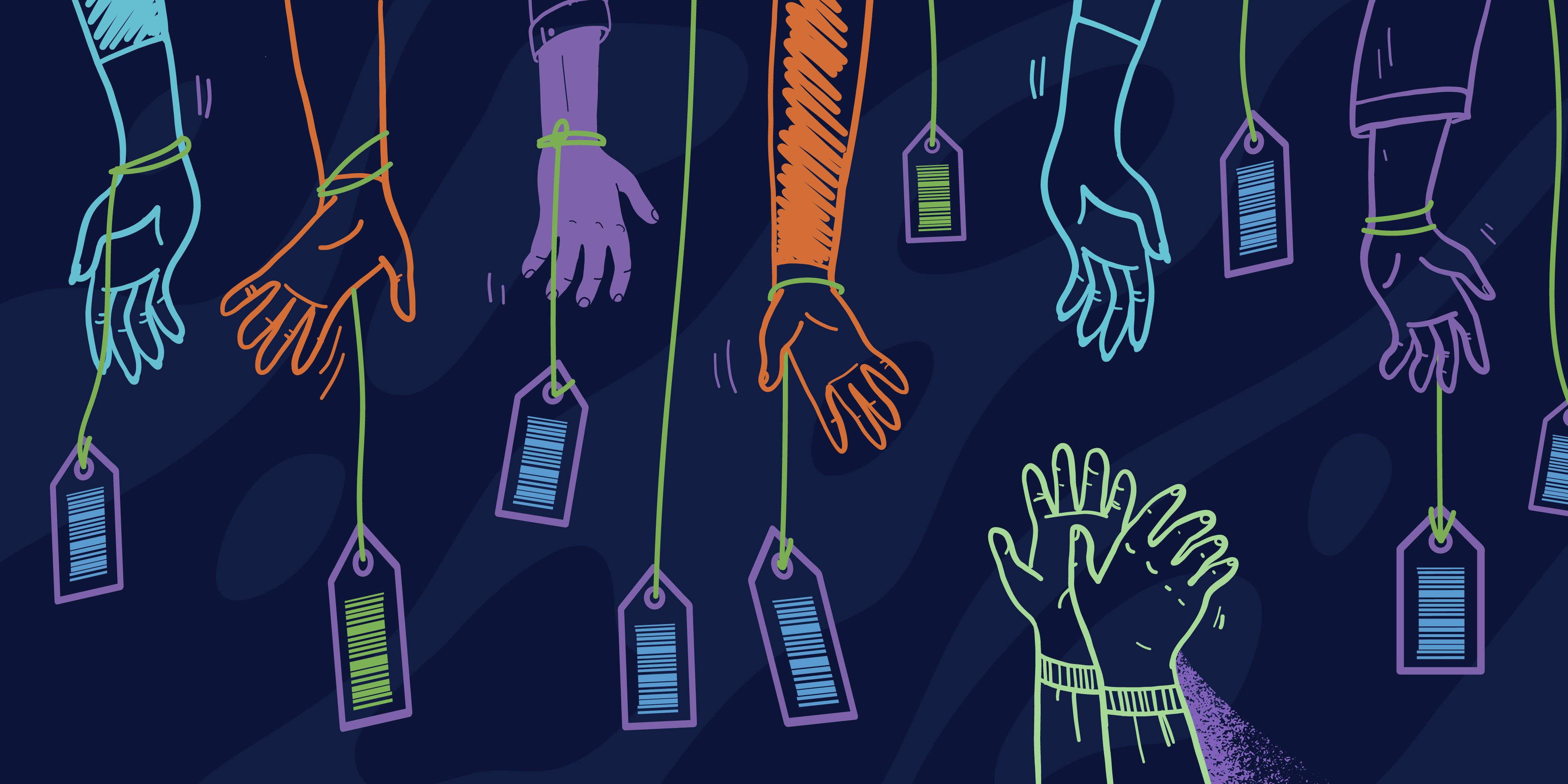Highlight 35/2022 – Human trafficking during the pandemic: did states succeed in protecting the most vulnerable?
Rosa Maria Ysobel Pareja, 27 May 2022

https://feedzai.com/blog/what-can-banks-do-to-stop-human-trafficking-plenty/
In an effort to contain the COVID-19 pandemic, states have curtailed the movement of persons. Governments imposed numerous movement restrictions to their own citizens, ordering stay-at-home mandates, prohibiting people from gathering at public places and limiting cross-border movements. More specifically, states have imposed travel bans and entry restrictions especially to non-citizens. The cross-border movement of persons, which had been so regular in today’s globalized world, suddenly halted.
These restrictions on movement, undoubtedly necessary to prevent masses from contracting the virus, especially prior to the existence of the vaccines, have pushed though the most vulnerable sections of society to dangerous situations. In a report published by the United Nations Office of Drug and Crime (UNODC), women, children and migrants have been identified as more vulnerable to trafficking and exploitation during the height of the COVID-19 pandemic. Traffickers have taken advantage of the situation and capitalized on the desperation of migrants who have not only lost livelihoods but were also unable to return home.
States, in response to the pandemic, inevitably had to realign resources towards public health initiatives. However, the question to ask is whether these policies ensured migrants access to basic health services? The UNODC revealed the challenges faced by victims and survivors of human trafficking because of the lack of access to basic health services. Victims of trafficking were also exposed to serious prejudice due to their particular status and to their further ostracization from society. At the same time, frontline service providers also found it difficult to address the needs of the vulnerable groups due to budget constraints and limited resources including manpower. Due to this lack of resources, frontline service providers even risked getting sick themselves and were unable to recruit more people to continue the work. Government responses to all these challenges were slow. The measures that had been taken failed to respond to the needs of the vulnerable groups and to coordinate the organizations who were prepared to assist. It is thus clear that there is a need for a shift in policy making: measures combating the spread of the virus must be more inclusive and address the increased risks faced by vulnerable groups.
It has been more than two years since the onset of the COVID-19 pandemic. NGOs and international organizations, including UN subsidiary bodies, have managed to adapt their strategies to be able to continue their work in monitoring situations, reporting and seeing through the continuation of the programs they have established. States have likewise removed most of the restrictions and allowed more cross-border movement. However, the pandemic is still on-going and poses continuous challenges, including the appearance of new viruses and variants which can push the world to another cycle of lockdowns and restrictions. A more inclusive approach and addressing the needs of vulnerable people, particularly the needs of migrants, will benefit society as a whole. A think piece published by the IOM’s Migration Research High Level Advisers, highlights that state’s covid response plans which deny protection to migrants increase the risk of spreading the virus. They also increase the risk of irregular migration as they push migrants to enter through backdoors without passing medical screening and monitoring.
States which were able to respond to the challenges faced by migrants during the pandemic have shared their practices: prioritizing access for trafficking victims to COVID-19 vaccination, non-punishment of trafficking victims for no testing and even granting residency status to asylum seekers to ensure access to healthcare. Not only does this show that states can acknowledge and meet the needs of vulnerable groups, it also acknowledges their duty to protect and uphold human rights even in emergency situations.
Rosa Maria Ysobel Pareja, Highlight 35/2022 – Human trafficking during the pandemic: did states succeed in protecting the most vulnerable?, 27 May 2022, available at www.meig.ch
The views expressed in the MEIG Highlights are personal to the author and neither reflect the positions of the MEIG Programme nor those of the University of Geneva.
References:
United Nations Office on Drug and Crime, The effects of the covid-19 pandemic on trafficking in persons and responses to the challenges (Vienna: United Nations, 2021)
Chetail, Vincent. “COVID-19 and Human Rights of Migrants: More Protection for the Benefit of All.” Graduate Institute, International Organization for Migration, Aug. 2020, www.graduateinstitute.ch/sites/internet/files/2020-09/covid19-human-rights.pdf.
